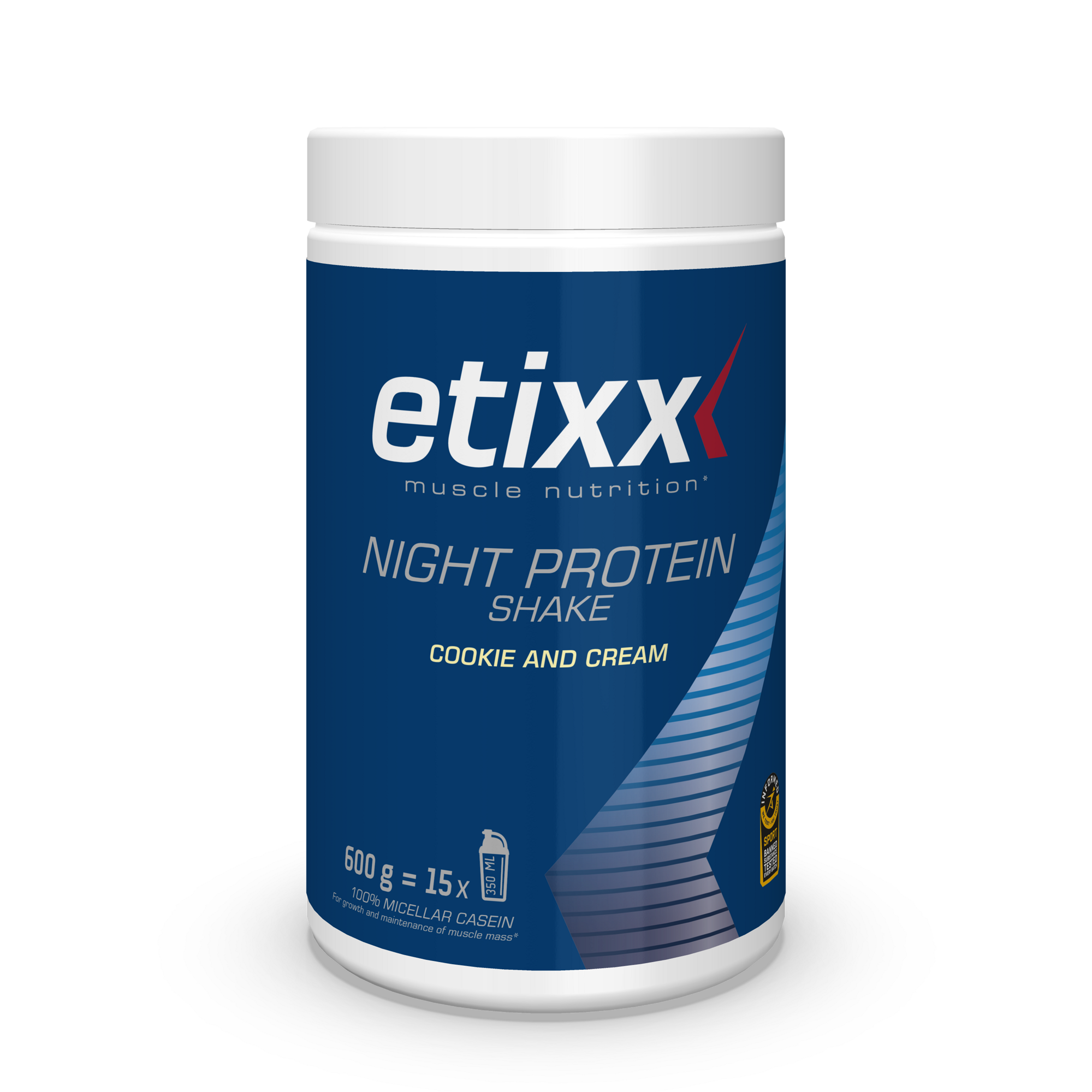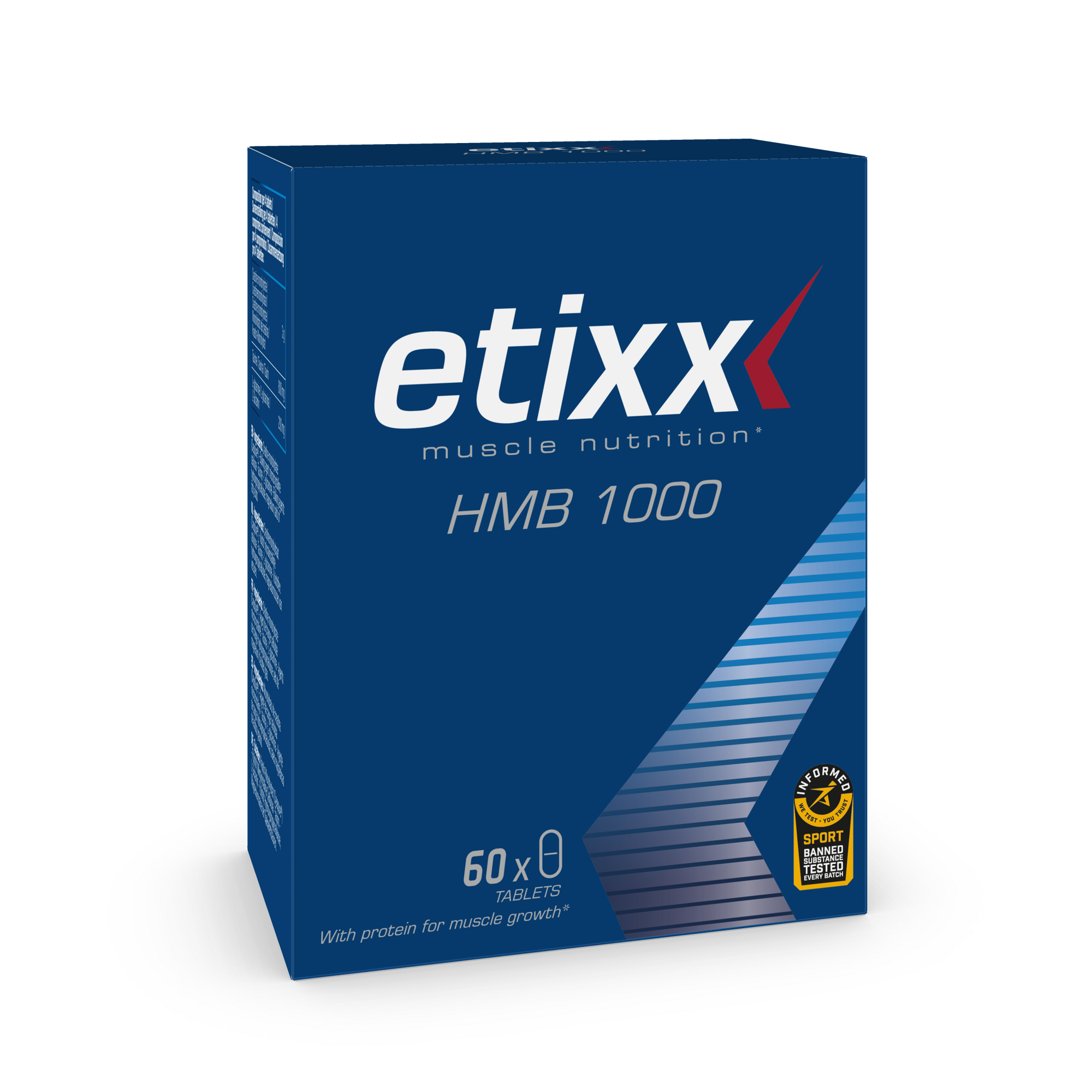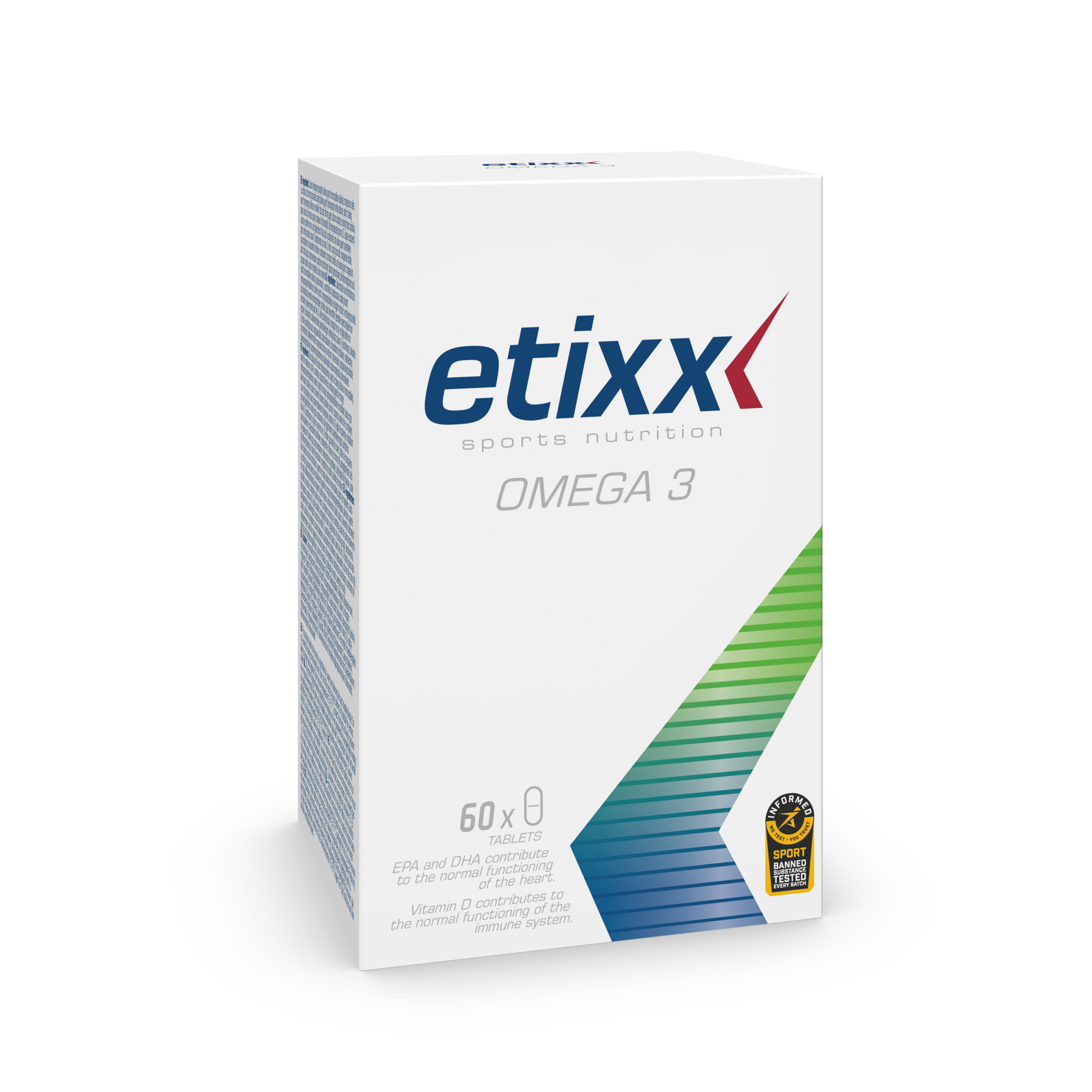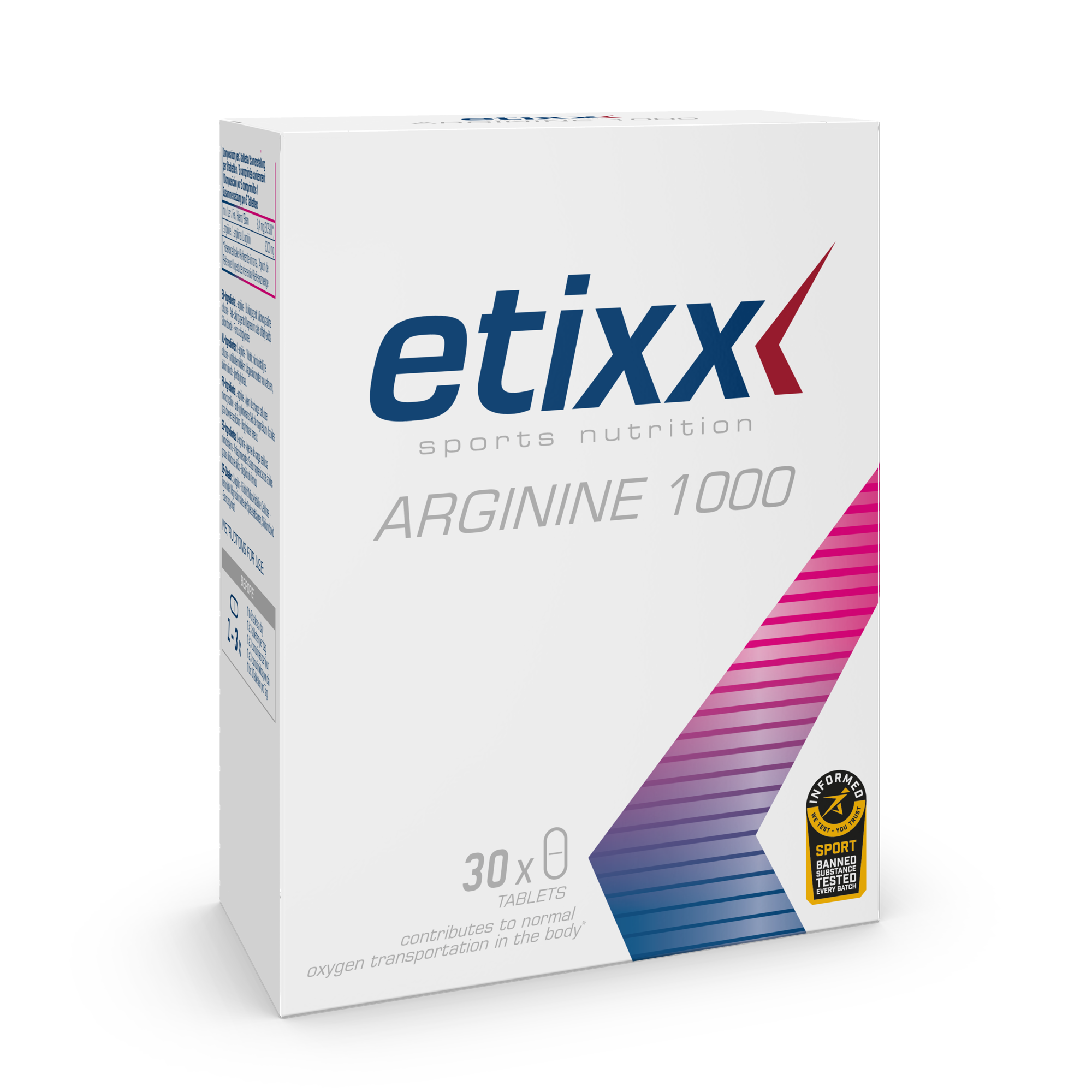Cycling - Mountain stages
Requirements for mountain climbing
Cycling itself already requires a great deal of preparation, both in terms of nutrition and training, but for mountain climbing the requirements are even higher. Mountain climbing demands extra strength, which can be gained through training on hilly routes. But training alone is not enough. The right nutrition is also essential to getting over those hills. Getting the right nutrition will give you that extra push to the top.
Preparation is important
When preparing yourself for cycle training in the hills, you have to consider your nutrition for the day of the event itself. Mountain climbing demands huge amounts of energy from the body, and it is therefore important that you get enough carbohydrates to optimise performance. In the week leading up to the race, it is important to increase your carbohydrate consumption by approximately 10-15%.
Reaching the summit with Etixx
If you store enough carbohydrates the day before cycling, then you will be able to endure 70 to 90 minutes of intensive exercise. After this, you will have to supplement additional fuel (carbohydrates) in order to avoid sudden fatigue. When cycling on hilly routes, it is important to pay attention to the timing of the consumption of carbohydrates. If the route is short, then it is important to consume the carbohydrates just before starting the climb. For longer climbs, it is better to consume them while climbing to give yourself the boost you need to get to the top. Don’t forget that it is very important to first test your fuel supply strategy during training. Jump on your bike, climb some hills with fuel in your pocket, and find out for yourself when the best time to refuel is.
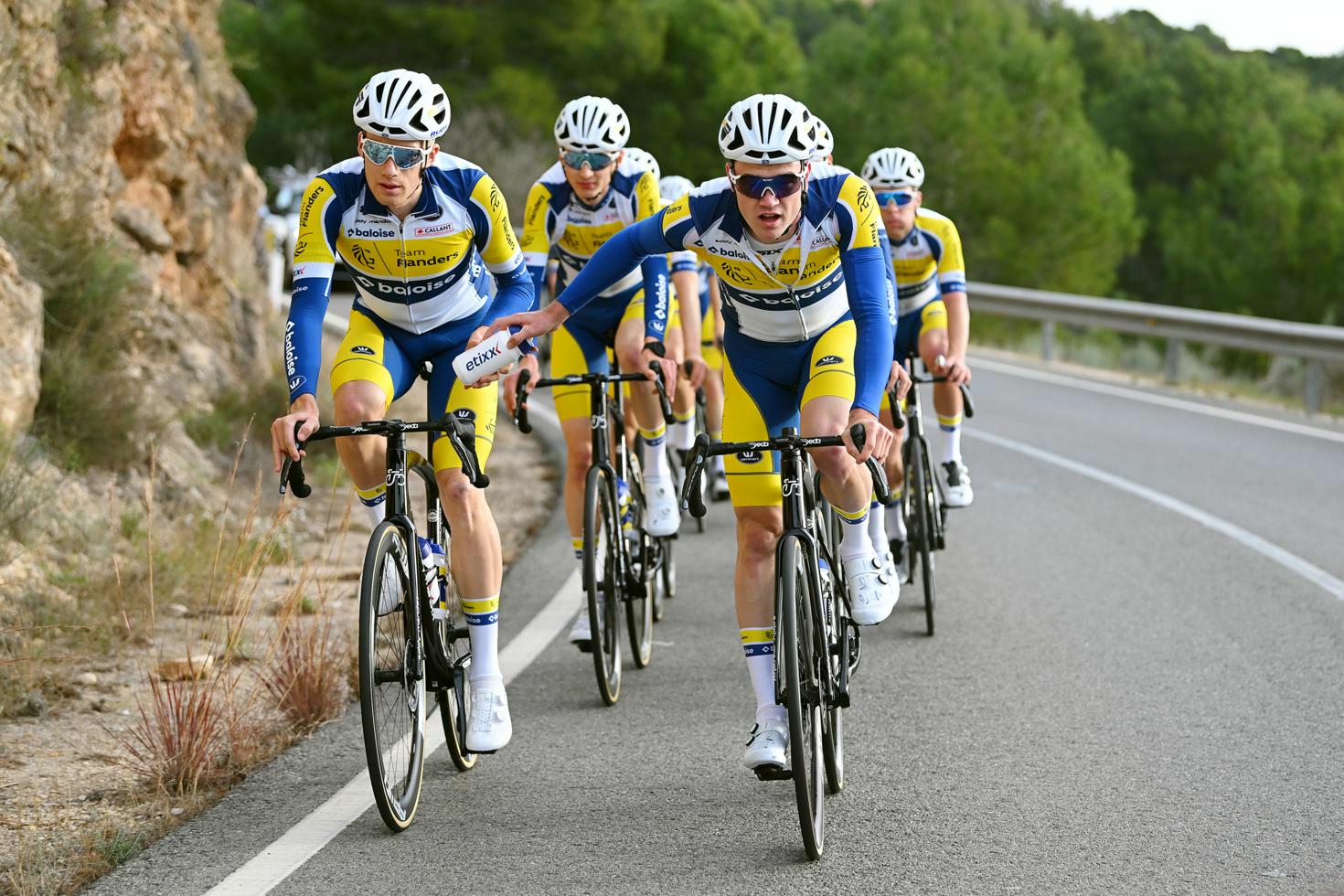
Daily nutrition advice for cyclists
In general, cyclists require more vitamins and minerals because of the exercise they do. Due to overworking and excess fertilisation, our agricultural land has been degraded, so that fruit and vegetables now contain less vitamins and minerals than roughly 50 years ago. This lower level of vitamins and minerals, combined with lower consumption of fruit and vegetables in general, means that cyclists have to pay extra attention to this. For this reason, extra supplements are highly recommended.
Eat and drink before exercise in order to make the best possible gains.
Our level of performance is directly proportional to our loss of moisture. It is important to start your training sessions properly hydrated. Pre-hydration starts the day before exercise, and mainly involves drinking water. The colour of your urine is a good indication of whether you are sufficiently hydrated. Dark yellow urine is a sign that you have not drunk enough. A light yellow colour indicates that you are well hydrated. During the meal before your session (3 hours before) or 10 minutes before the exercise, you can drink a sports drink to hydrate and get some extra carbohydrates.
Eat and drink something during exercise in order to gain as much performance as possible.
The amount of moisture that you will lose during exercise depends on duration, intensity, genetics, body size and various environmental factors such as humidity and temperature. It is therefore not entirely clear how much you should drink while exercising. A very good way to determine how much moisture you need to consume is to use some scales on a day during which you will be training. Weigh yourself before and after training, and multiply the lost weight by 1.5. The outcome is the quantity of fluid that you need to consume in order to compensate for what you lost as sweat.
In order to perform during long periods of exercise, the muscles must have enough glycogen, and that is why it is important to consume carbohydrates while training and replenish these reserves. If no carbohydrates are consumed during long periods of intensive exercise, glycogen in the muscles will become depleted after 90 minutes. The table below shows how much carbohydrate must be consumed, because requirements depend on the duration of the exercise:
| <1h | No additional carbohydrates required |
| 1-2h | 30g per hour |
| 2-3h | 60g per hour |
| >2,5h | Up to 90 g per hour |
You can choose to consume carbohydrates during exercise in liquid, semi-liquid or solid form. The more liquid the food, the faster the carbohydrates will be absorbed during exercise. In stress situations, preference is always given to liquid sources of carbohydrate, because our digestive system does not work optimally when we are under stress.
Eat and drink something after exercise in order to recover as quickly as possible
Proper recovery after training is crucially important, because strangely enough, your body gets stronger and fitter after exercise, not during. In line with the motto “You’re only as good as your last recovery”, it is important to pay attention to what you eat and drink after exercise. This determines how much you will gain from your training. Often, you have to drive or catch a bus, or rush to your next appointment, so you do not immediately supply your body with the building materials it needs to ensure proper recovery. This can cause you to start your next training with fatigue, potentially causing you to enter a negative spiral. This can result in delayed progress, or even injury. What you should do, is provide your body with fuel and the right nutrition as fast as possible.
Advanced plan
For those who are ready to take it a step further and are aiming for challenges that are just within their potential. The products below can help you with this depending on your goals.










